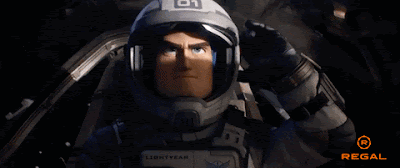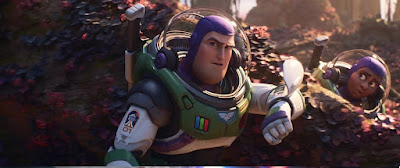or
FIFA Faux Fun
The story behind Next Goal Wins has been told before...in the 2014 documentary also titled Next Goal Wins. The facts are all there, too. You can look it up.*
It's just never been told by Taika Waititi before.
The story of the American Samoa soccer team attempting to invigorate (hell, "hot-wire" is the better term) their club after a record-book-breaking loss of 31-0 (to Australia) by hiring a coach who'd been fired from his last three coaching positions for anger-management issues is an absurdist nightmare of reaching for the dirt, and failing your way to greatness, the sort of story they don't cover in the sports channels except for a cruel laugh-getter before breaking to the next beer or ED commercial. It's hardly an inspirational story in the Lombardi** circles of "winning is the only thing" quippage. But, it IS a story about survival and dignity and overcoming log-odds humiliation. You know, the place where the other 98% of us live.
Now, I've been seeing a lot of grumbling about Waititi on the inter-webs in anticipation of this film. My general impression from it all is that the New Zealand director has somehow worn out his welcome or gone past his "Sell By" date. Oh, the gripers still like his TV shows—"Reservation Dogs" (on Hulu) and "Our Flag Means Death" (on HBO Max...or is it just "Max" these days?) and, of course, the "What We Do in the Shadows" series (on FX)—everybody likes those, but Waititi long-form seems to make me people cranky.
I don't get it (but I don't "get" a lot of things on the inter-webs).
Maybe Waititi is too "twee"—that is (by Oxford) "
excessively or affectedly quaint, pretty, or sentimental"—for some folks, but I would argue that Waititi takes on some pretty strong stuff in his movies (Hell-oo, Jojo Rabbit!)—and, as he works in a comedic vein, the effectiveness of his work will, also, always be subjective. Some folks have an under-developed sense of humor while some folks laugh at the the most painful of accidents. Comedians take on the burden of failure just by telling a joke. Waititi may not please everybody (and he certainly doesn't from the comments I've read), but he's also adept at horror and tragedy, frequently mixing things up and finding the absurd in everything.
And a LOT of people...especially those espousing a religious, bed-rock view of their deities...do not like that at all (Hey, I didn't like Thor: Love and Thunder, either, but I'm not going to dismiss a director for a dud***). There were just too many good things about What You Do in the Shadows, The Hunt for the Wilderpeople, the afore-mentioned Jojo Rabbit, and Thor: Ragnarok, not least of which was a steadfast impudence to take the material and play with it, rather than merely pay homage.
Okay, okay. How's the film?
Funny, for the main part...despite it beginning "with incredible humiliation." The film starts—after an introduction by Waititi playing a community priest—with a recap of that terrible World Cup defeat, followed by coach Tom Rongen (Michael Fassbender) being brought before a FIFA board with the intent of doing two things: walking him through the five stages of grief, and giving him a "take-it-or-leave-it" offer—he either goes to Samoa to coach the worst team in the league...or they fire him. That two members of the board are his separated wife (Elisabeth Moss) and her current boyfriend (Will Arnett) does not help in any way, shape or form.
Reluctantly, he flies to American Samoa, where he is greeted by the President of the Football Federation American Saomoa, Tavita Taumua (Oscar Kightley), who is also a camera-man/restaurateur/manager of the hotel provided to Rongen. At this point, Rongen considers himself exiled to prison, so he is merely content to drink his troubles away. The first practice does not go well, Rongen resorting to basics, laps, sipping from his SOLO cup and stewing. Then, one of the better players, Jaiyah (Kaimana) shows up late, back from Hawaii and still after-glowing from a great trip.Next Goal Wins has been called transphobic in some circles (a handful of reviews at the film's film festival premiere) because of this character. Put aside that this is based on a real player, Jaiyah Saelua, fa'afafine in the Samoan culture, an important figure in the sports trans community and is played by a trans actor. This smattering of reviews seem to think that the story is not about the team, but the one character. They play an important part, but are not the main focus of the story. The ultimate sin seems to be at one point, the drunken, frustrated and boorish head coach "deadnames" her to get her to focus. This is, of course, bad behavior. But, what this clutch of clutching reviewers seem to forget is that the coach—at this point in the story—is a bad guy. He's a white...Dutch (cue the colonizer music)...outsider who knows nothing about the culture and needs to be schooled. Call me cisgendered for taking that approach, but also call me a reviewer for looking at the bigger picture. I endeavor to go into a movie without preconceived notions and prejudices. I also try not to watch a movie myopically.
As it is, Jaiyah is the most winning part of the movie and is clearly more defined than the other team members, who, by this time of the movie aren't hoping to win a match...but merely to score a goal. She, to my mind, gains the audience's loyalty at that point and for the remainder of the movie. Not so, the coach. And as the token Aryan in the cast, Fassbender—not known for his comedic chops or his expressiveness—seemed to me to be channeling his inner Charlton Heston, all gritted teeth and furrowed forehead, a stranger in a strange land but determined to buffalo his way through it. And we all know what happened to the buffalo.Look, it's good. It's funny. It does well by its subject and it will provoke a laugh or two...if you're not sensitive to being shocked into laughter now and again.**** But, then I like the New Zealander humor and brashness (Crikey!). And everybody improves their game.
Look. I'm not an apologist for Waititi. Taste is subjective as is humor. And he's doing more things right than he might be doing wrong.
Look. I'm not an apologist for Waititi. Taste is subjective as is humor. And he's doing more things right than he might be doing wrong.
But, here's the thing: there is a perfectly fine documentary of the story out there if you look around. It just won't be as entertaining.
* And you can watch highlights (or low-lights, depending on your POV) of it here:
** Lombardi didn't come up with that "Winning isn't everything, it's the only thing" line. He stole it. From UCLA Bruins coach "Red" Sanders who'd been using it since the 1930's. Evidently plagiarism isn't the only thing, either.
*** Yeah, this is mostly a dig at Marvel fans who don't like Waititi's disrespectful treatment of the Marvel Universe, but, if any of the MCU series needed some rejuvenating sass it was the moribund "Thor" series.
Waititi's on tap to do a Star Wars movie in the future. You have to be a brave soul to walk into that fan-boy viper's nest.
**** One bit had me laughing for a solid 3 minutes after it occurred. Did not see that coming.

























































